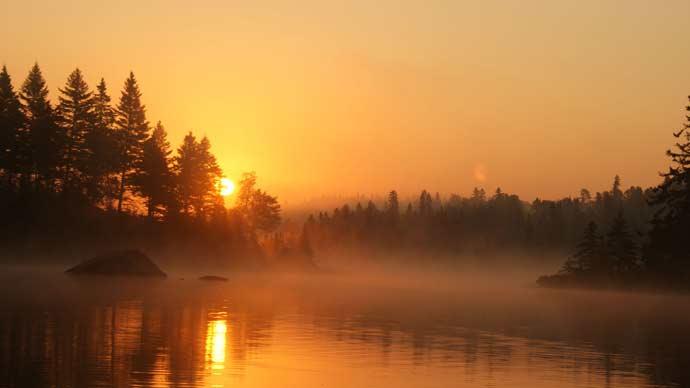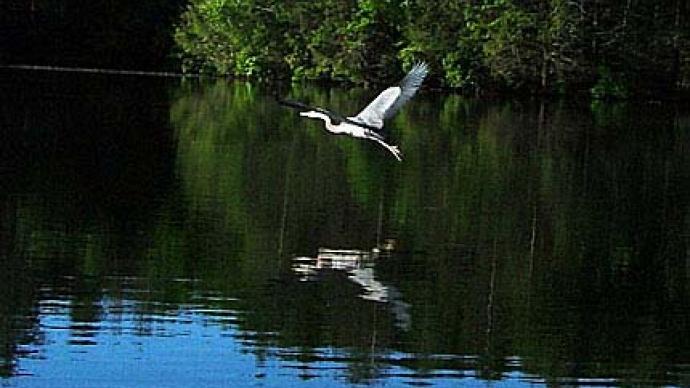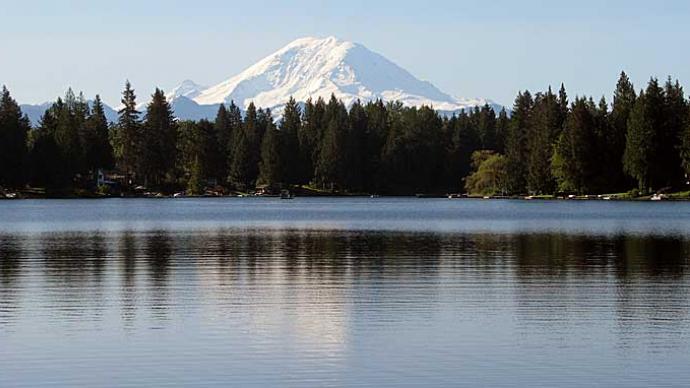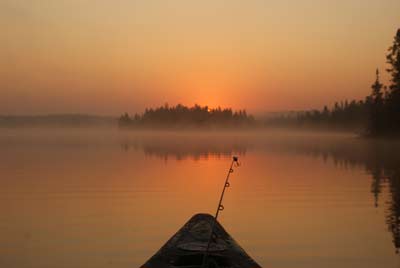
It isn’t easy to leave the warmest, driest place in 30 miles, i.e., a sleeping bag on a wilderness lake in northwestern Ontario, at four in the morning to step into the damp, gray, gloaming, but I did it again and again, with all due joy, for I knew what awaited me. I’d crawl out of my tent, walk over a fallen tree to the end of the island, and cast to a saddle. My fishing partner was slower than me, so I always incentivized him to hurry.
“Got one!”
The bass confirmed this with jumping and splashing.
“Got another one.”
“Got another one.”
“Got another one.”
“Got another one.”
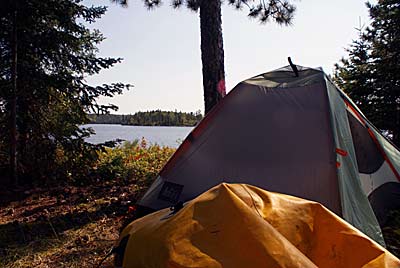
Five fish before my buddy emerged was typical. My record was nine. That’s nine smallies while my pal was still wiping the sleep from his eyes. This is one advantage of bunking beside bass. There are others, like low cost, beauty, and always having one eye on the water and a rod within reach when a bass dapples it.
I did most of my bunking beside bass in northwestern Ontario, my longest stretch being five weeks, but as a kid, I bunked beside farm pond bass and river bass and have slept beside bass on small rivers, big rivers, oxbows, and swamps.
However, I would have quit long ago if I had the same gear I had as a kid. The days of cotton clothing, canvas tents, and plastic ponchos are long gone. If you have childhood memories of being cold and wet forty years ago, they're just memories. Today's equipment keeps you dry and delivers deep sleep.
Regarding outdoor clothing, there’s an adage: Cotton kills. So, leave comfy cotton at home because it gets wet and stays wet. Buy quick dry pants and shirts made of nylon and Lycra. Most also afford significant sun protection, and many also offer insect protection. I often don't even don a rain jacket and pants with a quick shower because my quick-dry clothing does just that. Buy the quick-dry shorts at the end of summer and the quick-dry pants at the end of winter, and you'll usually score two for one. Wool also performs wet and dry.
Speaking of a rain jacket and pants, don't skimp. Buy Gore-Tex. Buy quality, and you'll get the quantity of years. I've been wearing my Gore-Tex rain jacket for more than 35 years. Yeah, it’s scruffy, but like the Energizer Bunny, it just keeps going and going and going.
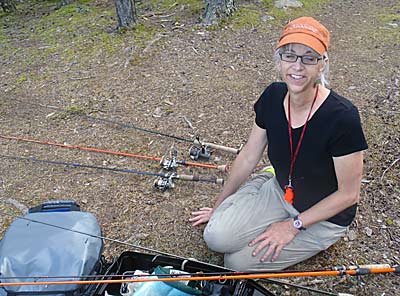
Tents are kept dry by a fly, a waterproof tarp that attaches to the tent. Don’t buy a tent with a fly that looks like a beanie. Buy one with a fly that completely covers the tent.
Self-inflating mattresses deliver the sound sleep you’ll need to fish long hours. I own multiple sleeping bags. Some are for steamy summer nights. Others are for fall and winter. All mine are filled with synthetic insulation because when goose down gets wet, it stays wet and is worthless. The synthetics, like wool, perform wet and dry.
Food is also a key element to a great trip. I once paddled and portaged to a musky lake. I had to cross four lakes and portage my gear through woods without trails. There was even a swamp along the way. So, I brought the lightest, smallest meals and spent the week thinking about food as much as muskies.
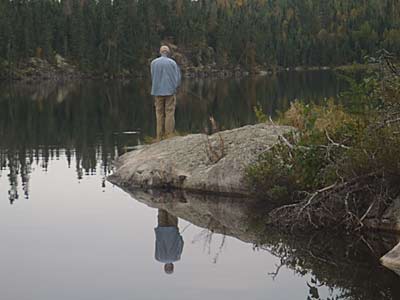
Never again. Now I bring tasty variety. Freeze-dried food is the lightest, but you can make lightweight food with a dehydrator. Bring what you enjoy so that you don’t obsess about what you didn’t bring. If you’re in bear country, you can hang your food as many do, but I don't. I seal it in a dry bag and leave it in the woods 25 yards from my tent. Over hundreds of days when bunking by bass in bear country, I’ve seen many bears during the day but never been bothered by one at night.
However, you can have great gear and still have a miserable trip simply because you picked the wrong campsite. I went with a friend once who chose a pretty shoreline campsite with towering trees after seeing the rocky end of an island where I wanted to camp. His camp had a carpet of pine needles. Yet, all week long, he complained about the mosquitoes.
“They’re horrible, aren’t they?” he’d say, looking for some co-misery.
“No,” I had to admit, “not where I’m camped.”
He looked at me doubtfully.
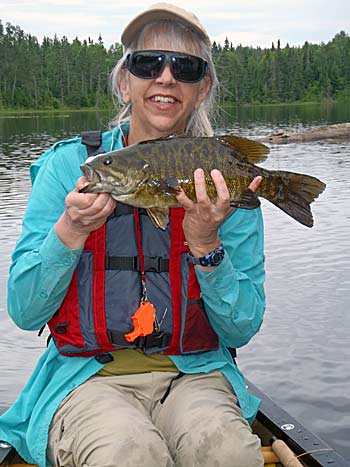
The difference was that I camped with little shade, which protects mosquitoes from dehydrating, and much wind, for I camped on the windy end of an island to buffet the bugs.
It's also crucial to prepare the site where you'll sleep. Get on your hands and knees and remove every twig, rock, and pinecone. Before you pitch your tent, lay your sleeping pad where you'll be sleeping and see how it feels. Make sure you sleep with your head higher than your feet. Do all this, and you'll sleep well.
When my father grew too old to paddle and portage, I rented fly-in cabins for him, but none of those lakes had fishing to compare to cheaply bunking by bass.
So, if someone asks you if you want to sleep with the fishes, don't think Tony Soprano and say, "No!" Think, "Got another one!" and go.


